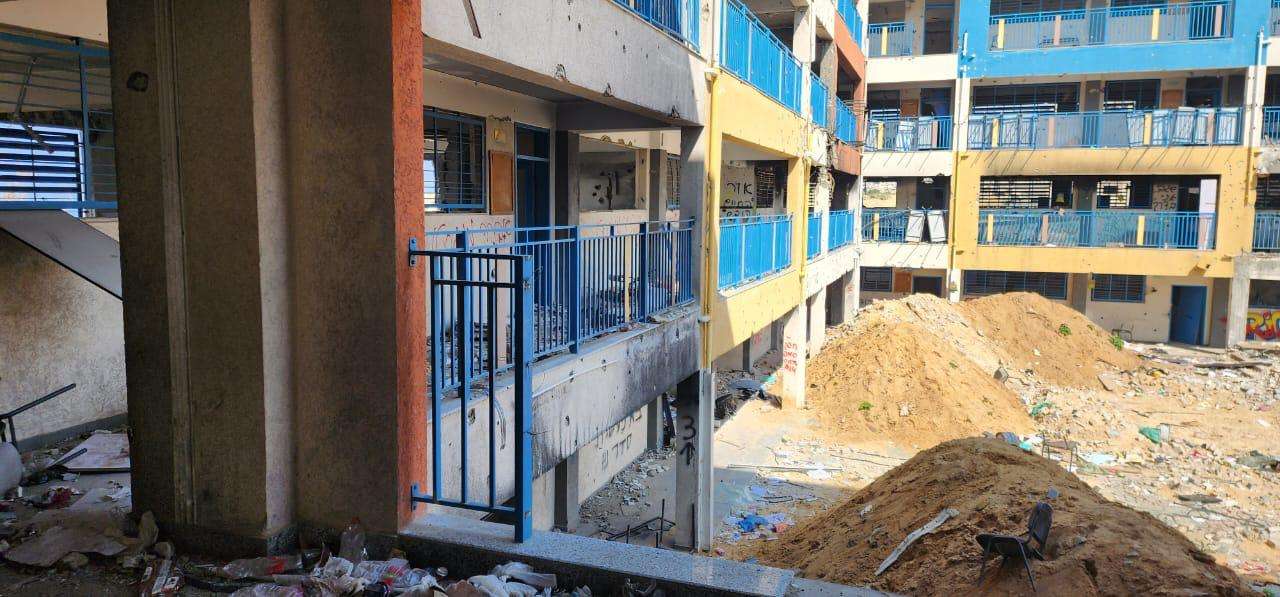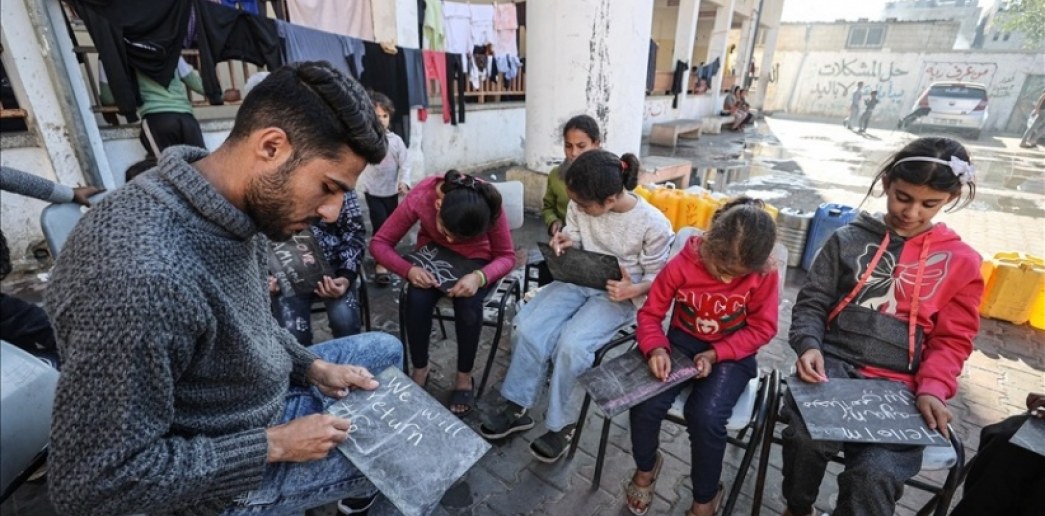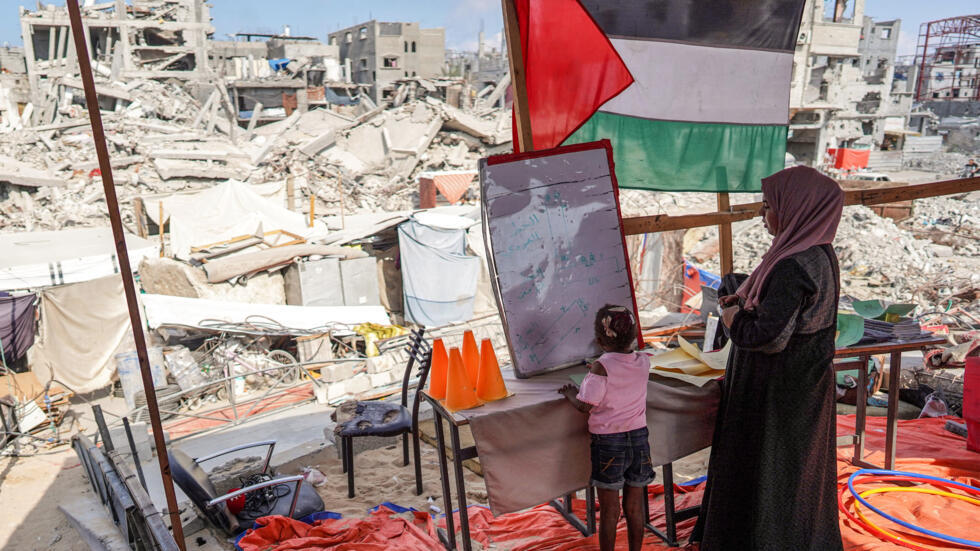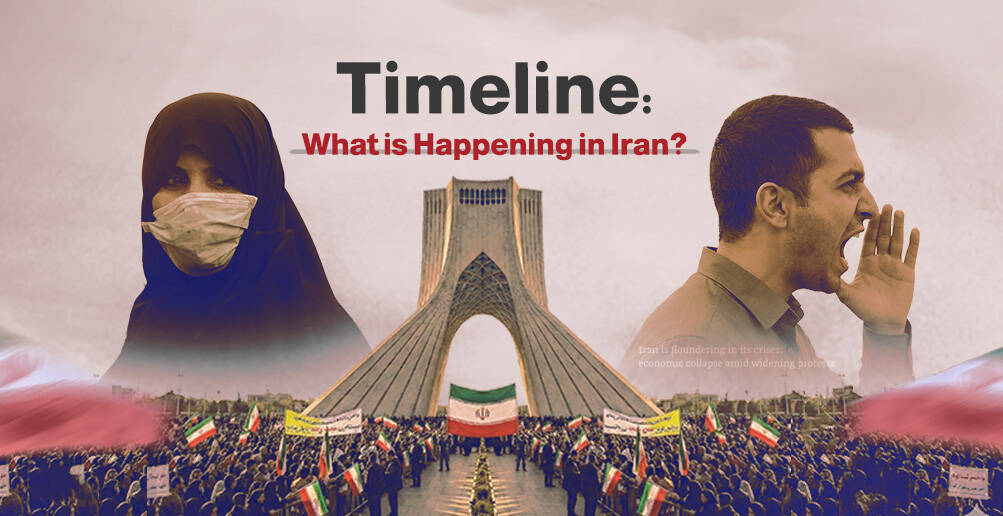Reviving Education in Gaza Amidst Destruction: Can Initiatives Succeed?

"Israeli Occupation denies 650,000 students their right to education."
For the second consecutive year, student Sally Maeen, like tens of thousands of students in the Gaza Strip, has not been able to attend school due to the ongoing Israeli aggression, fearing for her educational future.
The 19-year-old was supposed to complete her secondary school education in 2023, the year the Israeli aggression on Gaza began. However, she could not take her exams and thus lost the opportunity to start university, as she told Al-Estiklal.
The new academic year began in early September 2024 while most Gazans are living in tents and displacement sites because of the Israeli war, which has devastated all aspects of life, including educational institutions.
Denial of Education
The Israeli Occupation has deprived 650,000 students of their right to education for the second consecutive year due to its ongoing war on the Strip, according to the Ministry of Education and Higher Education in Gaza. This includes 88,000 university students.
The ministry stated in a press release on September 9 that the aggression has resulted in the death of over 11,500 Palestinian children of school age and injured tens of thousands more with physical wounds and psychological trauma by the end of August 2024.
More than 750 education sector employees have been killed, and thousands injured, with the Israeli Occupation deliberately targeting dozens of school and administrative buildings, causing 92 percent of them to be out of service, according to the same source.
The Euro-Med Human Rights Monitor reported that during August alone, 16 school buildings were targeted and destroyed without any legitimate justification.
On September 8, the same source noted that the attacks in the last month resulted in the deaths of 217 people and injuries to hundreds, many of whom were women and children.
Preliminary investigations conducted by Euro-Med Human Rights Monitor’s field team indicate that the Israeli Occupation deliberately destroyed what remained of shelter centers, including schools and public facilities, intending to create a coercive environment to force civilians to leave their homes and flee to central and southern Gaza.

The expansive Israeli aggression has prevented 39,000 secondary school students from Gaza, including Sally Maeen, from taking their 2023 final exams.
She had hoped to complete her secondary education so she could enroll in an Information Technology program at the Islamic University, which was destroyed by the Israeli Occupation forces during their extensive assault on the region.
Sally Maeen fears that she will not be able to complete this phase of her life during the current academic year, which has already begun amid the Israeli ongoing aggression.
The assault on Gaza has caused deep psychological effects on both students and teachers, exacerbating the difficult conditions caused by the suspension of education, continued displacement, death, and destruction.
Students, in particular, face severe impacts, including psychological stress, trauma, anxiety, depression, and terror due to the forced interruption of their educational journeys and the perceived loss of their future prospects.
Systematic Destruction
In addition to Sally Maeen's university, the Israeli Occupation forces have destroyed all 12 major universities in Gaza, including al-Azhar, al-Aqsa, and al-Quds Open University, as well as numerous colleges and institutes.
“Israel” has either destroyed these educational institutions or converted them into military barracks and detention centers for interrogations.
On September 7, the United Nations Relief and Works Agency for Palestine Refugees (UNRWA) reported that nearly 200 schools in Gaza have been closed since October, with many of them used as shelters throughout the war.
Since the onset of the aggression, more than half of UNRWA facilities have been bombarded, with the vast majority being schools, according to previous United Nations reports, which indicate that some have been completely destroyed and are out of service.
Earlier, UNRWA stated that 76% of schools in Gaza need substantial rebuilding or rehabilitation to resume operations.
A report published in March 2024 by the World Bank, UNRWA, and the European Union estimated the damage to the education sector in Gaza to be around $341 million.
Direct targeting of school buildings has reached 61% for government schools, 44% for UNRWA schools, and 44% for private schools, according to a May 2024 report by the Teacher Creativity Center in partnership with the National Committee for Civil Society Institutions and the Palestinian Educational Coalition.
The report's data indicate varying levels of destruction across different areas.
Total and partial destruction rates in schools were 62.9% in the northern Gaza Strip, 28.6% in Gaza City, 14.3% in the central Gaza Strip, 22.9% in Khan Younis, and 17.1% in Rafah, in the southern Gaza Strip.
This assessment underscores the extensive destruction faced by Gaza's educational sector, affecting a total of 813 schools.

Initiatives for Recovery
In response, teachers and educational institutions have not remained idle and have launched individual initiatives to enroll university and school students in education, even if informally or irregularly.
On July 1, 2024, the Islamic University of Gaza announced the resumption of classes for undergraduate students who have the necessary tools for distance learning through an online education system.
The university also confirmed the postponement of tuition fees upon registration “in recognition of the exceptionally difficult circumstances faced by students, their families, and our people, and in support of their patience and resilience.”
Many universities have taken similar steps to resume the educational process, amid stalled hopes for a ceasefire deal and prisoner exchanges.
Most universities in the West Bank, including an-Najah, Birzeit, and Hebron, among others, have launched initiatives titled “Restoring Hope for Gaza Students” to continue their education online as foreign students.
However, this system faces numerous challenges, including the lack of electricity, internet access, computers for studying, frequent displacement, and the absence of safe spaces.
Several teachers have also initiated individual educational projects within the schools where they are sheltering to teach children.
For instance, teacher Israa Abu Mustafa established a classroom in a tent surrounded by the rubble of destroyed homes in Khan Younis to teach children and maintain and develop their academic level despite the Israeli aggression.

Others have also set up tents on the ruins of their homes to teach elementary school children. Recently, numerous videos and photos of these initiatives have circulated widely.
Some teachers have opted to combine education with games and recreational activities to help develop the skills of displaced children in schools and shelters.
Sources
- As part of its ongoing genocide, Israel attacks 16 shelter centres in Gaza in a single month
- Another School Year Begins Amid Gaza War: What Are the Impacts of the Education Halt? [Arabic]
- Report: Educational Damages in Gaza Estimated at $341 Million [Arabic]
- Resumption of Undergraduate Education at the Islamic University of Gaza [Arabic]
- Restoring Hope' Distance Learning Initiative: From Birzeit University to Gaza Students [Arabic]










